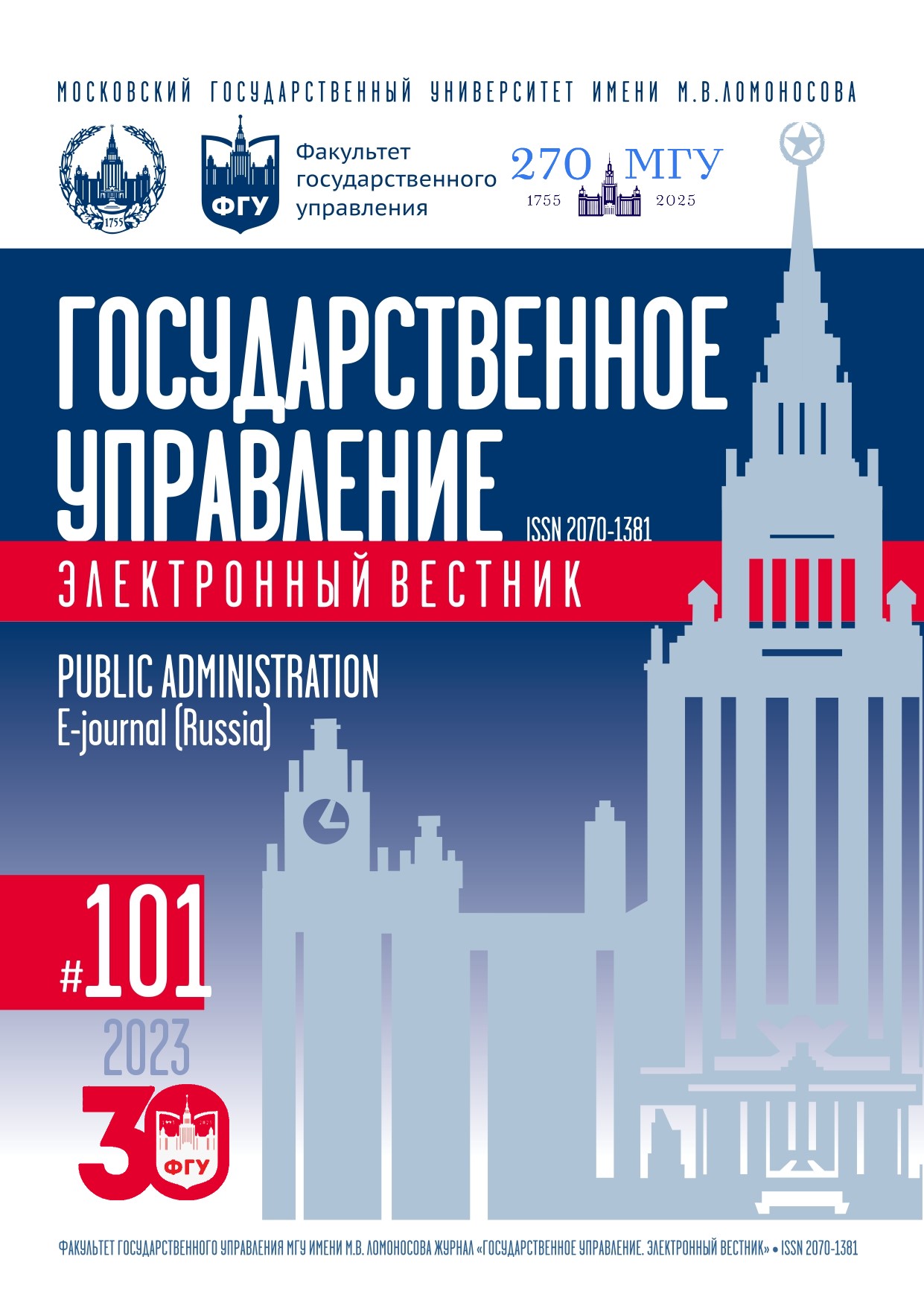Prospects of Using Happiness Economics Concept in Assessing a Macroregion Socio-Economic Development
Keywords:
Economics of happiness, happiness indices, quality of life, macroregion, research methods of the happiness level, subjective well-being, macroregion socio-economic development, level of happinessAbstract
The article is devoted to the study of the happiness economics as one of the modern scientific directions in economic theory and identifying the prospects of using its concept in assessing the macroregion socio-economic development. The authors believe that in studies, devoted to the socio-economic development of Russian regions, it is necessary to take into account both objective statistical indicators of the quality of life and data on the people’s subjective well-being by determining their level of happiness. The article considers the history of the happiness economics, the foreign and domestic research methods of the happiness level, such as the International Happiness Index, the Prosperity Index, The Gross National Happiness Index, the World Happiness Report, the Better Life Index, monitoring the happiness level of Russians by VTSIOM, the happiness index of Russian cities, etc. The authors described six main groups of factors that have a positive impact on the feeling of the macroregion population happiness: economic, social, cultural, governance, environmental, innovative. It is concluded that the economics of happiness can increase the human capital and the inhabitant’s commitment to the macroregion territory. This is especially relevant for Russia with high interregional migration and emigration from the country. Positively influencing the people’s emotional well-being, the happiness economics concept can change everyone’s life for the better, regardless of the region of residence. The research materials can be used by state and local government entities for assessing the effectiveness of policy in the well-being of the population using the unique properties of each region.
References
Антипина О.Н. Этические аспекты экономической теории счастья // Общественные науки и современность. 2021. № 1. С. 48–62. DOI: 10.31857/S086904990013360-8
Антипина О.Н., Кривицкая А.Д. Оценка влияния макроэкономических показателей на уровень счастья // Журнал экономической теории. 2020. Т. 17. № 4. С. 760–769. DOI: 10.31063/2073-6517/2020.17-4.1
Инглхарт Р. Культурная эволюция: как изменяются человеческие мотивации и как это меняет мир. М.: Мысль, 2018.
Копуш Д.-Х.М., Леонтьева Л.С. Актуальные тенденции пространственного развития регионов Сибирского федерального округа // Государственное управление. Электронный вестник. 2022. № 95. С. 161–174. DOI: 10.24412/2070-1381-2022-95-161-174
Попова С.А. Цивилизационное счастье как альтернатива валового внутреннего продукта // Вестник Евразийской науки. 2021. Т. 13. № 3. URL: https://esj.today/PDF/23ECVN321.pdf
Смолева Е.О. Счастье и деньги: материальные аспекты субъективного благополучия // Проблемы развития территории. 2020. № 3(107). С. 144–166. DOI: 10.15838/ptd.2020.3.107.10
Судова Т.Л., Елисеева Е.А., Еникеева Л.А. Экономика счастья: качественные и количественные аспекты // Петербургский экономический журнал. 2021. № 4. С. 5–16. DOI: 10.24412/2307-5368-2021-4-5-16
Шматова Ю.Е., Морев М.В. Измерение уровня счастья: литературный обзор российских и зарубежных исследований // Экономические и социальные перемены: факты, тенденции, прогноз. 2015. № 3(39). С. 141–162. DOI: 10.15838/esc/2015.3.39.11
Easterlin R.A. Does Economic Growth Improve the Human Lot? Some Empirical Evidence // Nations and Households in Economic Growth: Essays in Honor of Moses Abramovitz. 1974. P. 89–125. DOI: 10.1016/B978-0-12-205050-3.50008-7
Easterlin R.A. Happiness and Economic Growth: The Evidence // IZA Discussion Paper. 2013. № 7187. URL: https://docs.iza.org/dp7187.pdf
Kahneman D., Deaton A. High Income Improves Evaluation of Life but Not Emotional Well-Being // Proceedings of the National Academy of Sciences. 2010. Vol. 107. Is. 38. P. 16489–16493. DOI: 10.1073/pnas.1011492107
Oswald A.J., Proto E., Sgroi D. Happiness and Productivity // Journal of Labor Economics. 2015. Vol. 33. Is. 4. P. 789–822. DOI: 10.1086/681096
Usai A., Orlando B., Mazzoleni A. Happiness as a Driver of Entrepreneurial Initiative and Innovation Capital // Journal of Intellectual Capital. 2020. Vol. 21. Is. 6. P. 1229–1255. DOI: 10.1108/jic-11-2019-0250
Veenhoven R. Social Conditions for Human Happiness: A Review of Research // International Journal of Psychology. 2015. Vol. 50. Is. 5. P. 379–391. DOI: 10.1002/ijop.12161
Wijaya A., Kasuma J., Tasente T., Darma D.C. Labor Force and Economic Growth Based on Demographic Pressures, Happiness, and Human Development: Empirical from Romania // Journal of Eastern European and Central Asian Research (JEECAR). 2021. Vol. 8. Is. 1. P. 40–50. DOI: 10.15549/jeecar.v8i1.571

